What is the Average Cost of Your Car Breaking Down?
Bradley Jando | Thursday 20th May 2021 9:18am
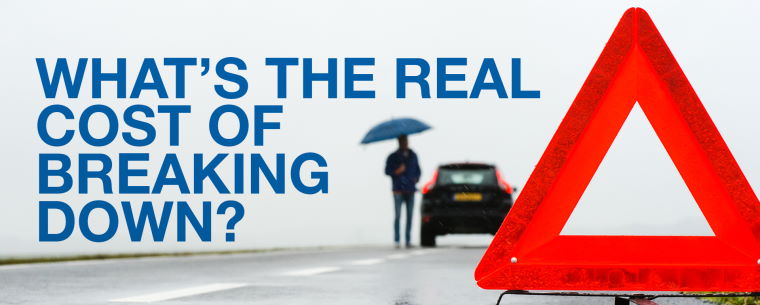
As a driver, the thought of surprise breakdowns or unplanned repairs can be the thing of nightmares - conjuring up thoughts of hefty mechanic bills, or even having to get a new car altogether.
In 2021, we commissioned a survey of over 2,000 UK adults to find out more about their relationship with their cars - and how often they break down.
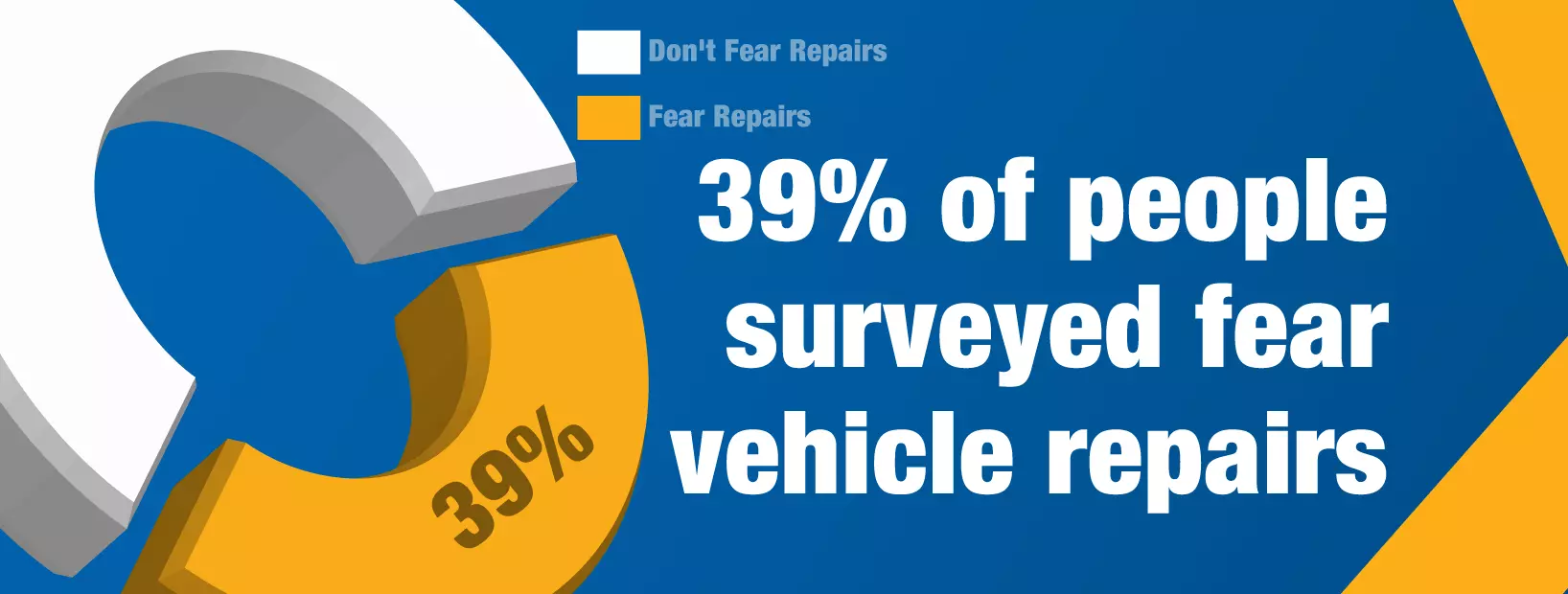
While none of us like to think about breaking down, it does happen. In fact, 36% of the drivers we surveyed have broken down in their current car - with the most common causes being battery failure, engine failure, or the car simply not starting.
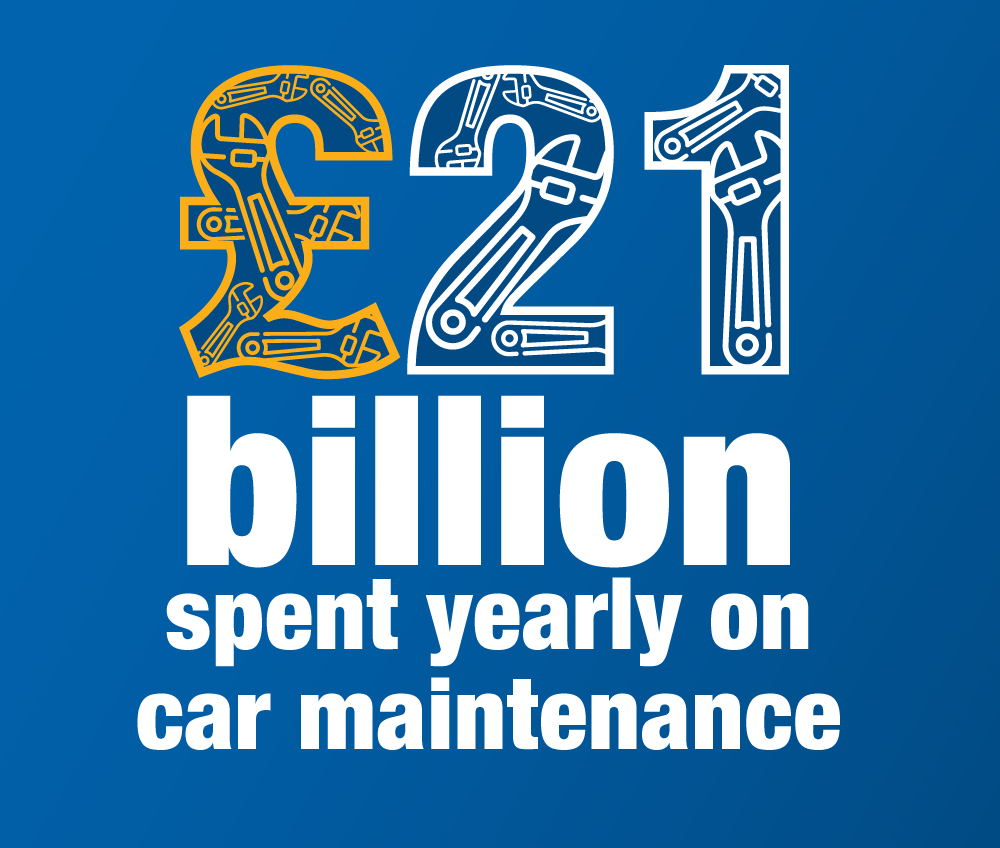
And while this doesnít have to be the case, research has shown that these concerns can sometimes be justified. In fact, in 2019, Holt Lloyd International, experts in car care and maintenance, found that UK drivers are spending £21 billion a year preventing their cars from failing - as well as a whopping £330 million on emergency breakdown cover.
While these numbers may seem pretty insane, when you think about there being almost 40 million licensed vehicles in Great Britain, the numbers can build up rapidly. But how does it break down for the average driver? What is the average cost of breaking down in the UK? Well, thatís what we wanted to find out.
The cost of breaking down
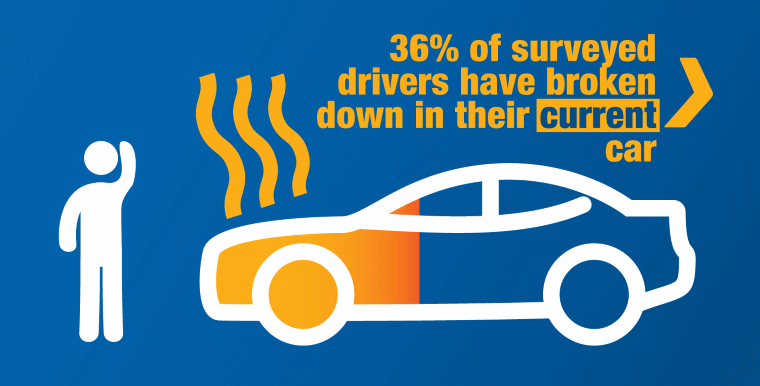
We found that your average driver paid £295.60 for their most recent repair, but this was impacted by a few different factors. For example, over 55-year olds paid an average of £199.60 for their most recent repair, whereas 18-34-year-olds paid £409.20 - more than double!
While the average bill checked in at just under £300, there were still a few outliers. In fact, a particularly unfortunate 1.2% of people who have needed a repair have paid over £1,500 for their last repair bill - equivalent to 368,000 people! An understandably nightmare-inducing sum for many.
Are women hit harder when it comes to repair bills?
In 2017, a study published by researchers at Northwestern Universityís Kellogg School of Management in the US found that when men and women contacted a garage about a repair, and both presented no knowledge of what the repair should cost, the female callers were, on average, quoted higher prices - something that took the researchers by surprise.
However, interestingly, our study found that female drivers paid on average around £20 less than their male counterparts for their most recent breakdown. Female drivers paid on average £285.40 for repairs compared to the £304.90 paid by male drivers.
You also might expect that older drivers had more experience with breakdowns - due to being on the road for longer, and likely driving at a time when cars were less reliable. However, our survey found that 32% of drivers over 55 said they had never had a breakdown - the same proportion as drivers within the 18-34-year-old category. In contrast, only 26% of 35-54-years-old drivers say they have never had a breakdown.
Do you pay more based on where you live?
Gender and age arenít the only factors at play when it comes to paying more or less if you break down, however. It may come as little surprise that Londoners paid the highest average cost for their latest repair bill at £437.60. This is perhaps why Londoners are the least likely to own a car, or have access to more than one car per household when compared to the rest of the UK.
Government statistics show that in 2019, London residents on average had access to less than one car per household ; whereas in the East, South East, and South West of England, residents had access to almost 1.5 cars per household. Rising running costs and repairs bills being the highest in the country could well be a factor.
Not willing to fork out that much money for motoring mishaps? Relocating to Wales may be your best bet, where the average repair bill is almost half of that at £221.90 - the lowest of all regions we surveyed.
Breaking down why we fear breakdowns
Breakdown concerns are very real and very valid for a lot of drivers. For some, access to a car means access to their way of earning a living or being able to get their family around safely. When it comes to the biggest concerns around breaking down, itís perhaps no surprise that the cost of repairs tops the list.
43% of women we spoke to said that they feel most concerned about the cost of repairs after a breakdown, compared to 35% of men. We did find that concern over the cost of repairs rises to 50% for those who have broken down in the last three months Ė indicating that the financial impact stings most in the short term, but then fades a little over time. Although that may depend on how big the bill was!
Other concerns involved the cost of breakdown recovery, not being able to get to work and having to cancel plans as a result - with the last two tipping the balance as something that men fear more than women.
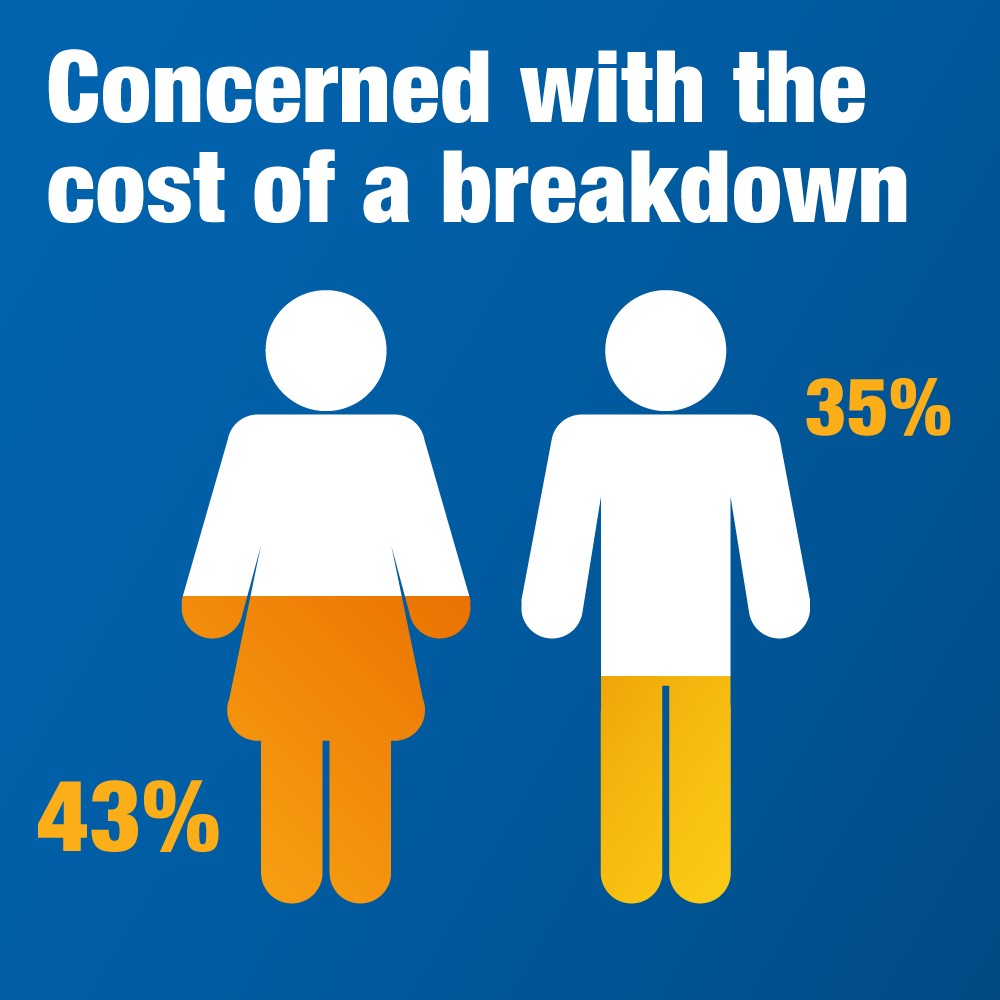
Donít let breakdown worries divert your driving
While breakdowns and mechanical issues can be a frustration, you donít have to go through it alone. With over 600 centres across the UK, Kwik Fit is on hand to help - no matter where youíre heading, or whatís happened to your car. Find your local centre to speak to one of our experts for breakdown advice today.
Any facts, figures and prices shown in our blog articles are correct at time of publication.
Featured Articles
Is it Illegal to Drive With One Headlight?
Saturday 19th July 2025
Wondering if itís illegal to drive with one headlight? Learn about the safety risks and penalties of illegal blown bulbs and why you should fix them promptly.
Air Con in EVs & Hybrids: Experts Answer Your Questions
Monday 30th June 2025
Does air con drain EV batteries? Can you use the air con while charging an electric car? Find out the answers to these questions & more from Kwik Fitís experts.
Why Is Your Car Making a Noise? Fixes & Tips
Friday 13th June 2025
When your car starts making unexpected noises, it can certainly be quite disconcerting; it may be nothing to worry about, but hereís what you need to know.









